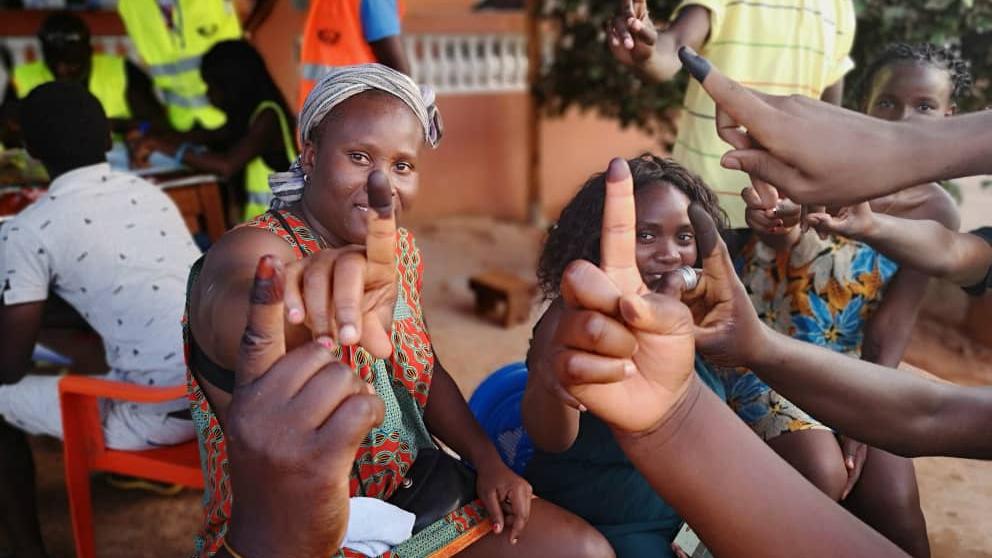No incident was reported and generally speaking the polls were peaceful with organizers, voters, civil society and international community hoping that they will definitively end the four-year political instability in the country.
As ballot counting is underway nobody knows which among the African Party for the Independence of Guinea-Bissau and Cape Verde (PAIGC), the outgoing majority party and the 20 other political parties might win simple or absolute majority of the 102 seats of the Assembly National Popular (ANP). The Nation Election Commission in a press conference shortly before the closing of the voting said it was by law exclusively entitled to release partial or complete provisionary results. The turnout is also yet to be known but long queues were noticed in Bissau at polling stations. Many voters were also reported queueing up at their voting locations across the country.
International observers from the Community of Portuguese Speaking Countries (CPLP), the Economic Community of West African States (ECOWAS), the African Union and the United States of America praised almost in unison the tranquility and civility that have marked the holding of elections.
For its part, the UN through the Secretary-General Deputy Special Representative in Guinea-Bissau, David McLachlan-Karr, has congratulated politicians, voters and officials across the country for the peaceful conduct of yesterday’s elections.
It is “a very positive result for the people” he said adding that “people have come out to vote in large numbers, voted peacefully. There have been no reports of major security incidents around the country.” The United Nations Integrated Peacebuilding Office in Guinea-Bissau (UNIOGBIS) had had several teams on the ground in the regions and in Bissau to monitor the holding of elections with all reports being collected and processed in a situation room at the headquarters.
In its last February 2458 Resolution on UNIOGBIS, the Security Council urged “all Bissau-Guinean political actors to work toward the preservation of the still fragile gains in the path of stability in the country and reaffirms the importance of holding genuinely free and fair legislative elections in Guinea-Bissau no later than 10 March 2019 as well as presidential election.”
The Security Council and the international community also echoed the desires of Bissau-Guineans, who after a four-year political crisis and economic downfall have repeatedly demanded the return to normalcy.
The 10 March legislative elections are the first step towards that end and as Resolution 2458 stresses, “all stakeholders in Guinea-Bissau should work to ensure short, medium and long-term stability through clear commitment and genuine inclusive political dialogue aimed at creating conditions conducive to finding viable and sustainable solutions to the country’s social, economic, political and military problems, which would facilitate the implementation of key reforms and the strengthening of State institutions.”






